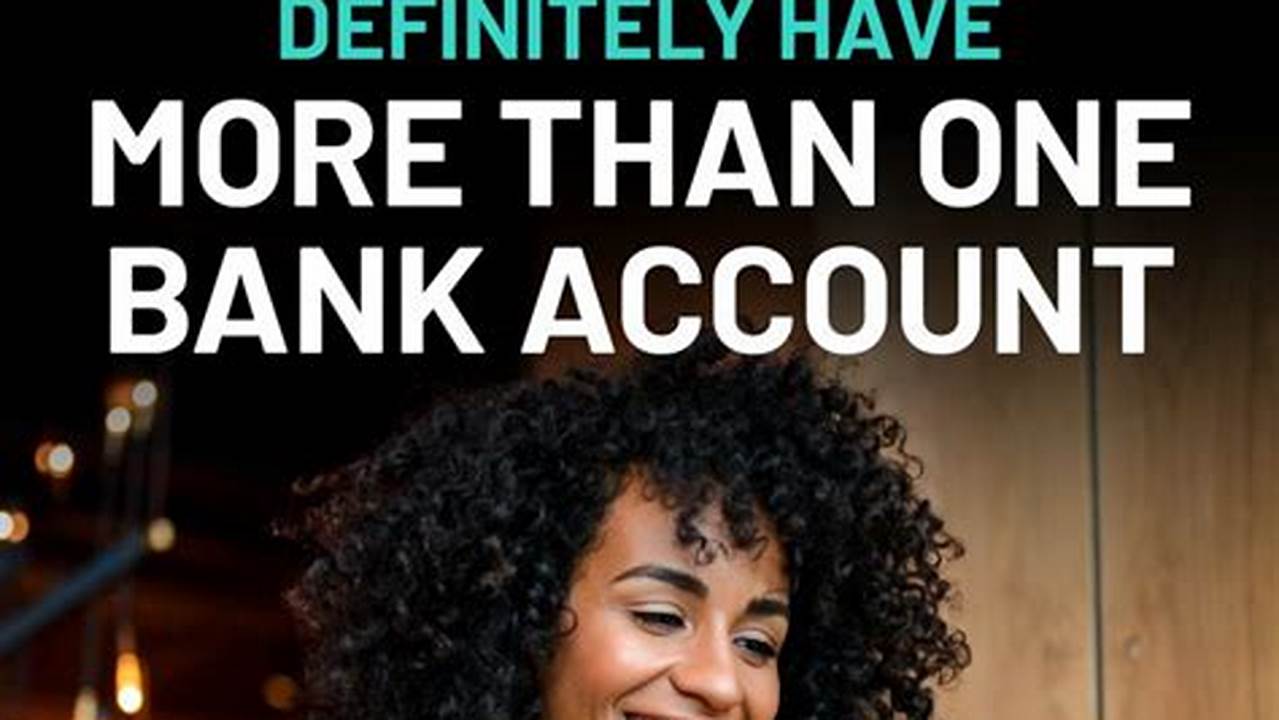Managing finances effectively often requires a nuanced approach beyond a single bank account. A diversified banking strategy can offer significant advantages for organizing funds, achieving financial goals, and maximizing savings.
Budgeting and Expense Tracking
Separate accounts can simplify budgeting by allocating funds for specific purposes, like rent, groceries, or entertainment. This visual separation makes it easier to track spending and adhere to budgetary limits.
Emergency Fund Savings
Dedicating an account solely for emergencies provides a financial safety net, readily available when unexpected expenses arise. This separation ensures these funds remain untouched for their intended purpose.
Short-Term Savings Goals
Saving for specific goals, such as a down payment or vacation, becomes more manageable with dedicated accounts. Tracking progress is simplified and the temptation to dip into these funds for other purposes is reduced.
Long-Term Savings and Investments
Different accounts can be utilized for various long-term goals, like retirement or children’s education. This allows for diversified investment strategies and clearer tracking of progress towards each goal.
Direct Deposit Management
Multiple accounts facilitate efficient allocation of income. Salary can be automatically distributed to different accounts designated for specific purposes, streamlining financial management.
Interest Rate Optimization
Leveraging accounts with higher interest rates for savings can maximize returns. Different banks and account types offer varying interest rates, allowing for strategic placement of funds.
Account Security and Fraud Protection
Distributing funds across multiple accounts can limit the impact of potential fraud or security breaches. Compromising one account will not jeopardize all financial resources.
Relationship Management with Different Banks
Maintaining relationships with multiple banks can provide access to a wider range of services and products, potentially offering better terms and conditions.
Business Expense Management (For Business Owners)
Separating business and personal finances is crucial for accurate accounting and tax reporting. Dedicated business accounts simplify tracking income and expenses.
Overdraft Protection Strategies
Linking accounts can provide overdraft protection, preventing declined transactions and associated fees. This safeguards against accidental overspending in one account.
Tips for Managing Multiple Accounts
Regularly review account activity: Consistent monitoring helps identify errors, track progress towards goals, and maintain an accurate overview of financial health.
Utilize online banking and mobile apps: These tools provide convenient access to account information and facilitate easy transfers between accounts.
Set up automatic transfers: Automating regular transfers streamlines budgeting and savings efforts, ensuring consistent contributions to designated accounts.
Consolidate if necessary: Periodically assess the need for each account. If accounts become redundant or underutilized, consolidation can simplify management.
Frequently Asked Questions
Is there a limit to the number of bank accounts one can have?
No specific limit exists, but managing numerous accounts can become complex. Focus on a number that effectively serves your financial needs.
Are there fees associated with multiple accounts?
Some banks may charge monthly maintenance fees, especially for accounts with low balances. Research different banks and account types to minimize fees.
How can I keep track of multiple accounts effectively?
Utilize budgeting apps, spreadsheets, or online banking tools to monitor balances and transactions across all accounts.
Can having multiple accounts affect my credit score?
Opening multiple accounts in a short period can temporarily impact credit scores. However, simply having multiple accounts does not inherently affect credit scores negatively.
Is it safer to keep all my money in one account or spread it out?
Distributing funds across multiple accounts can enhance security by limiting the impact of potential fraud or breaches.
What are the drawbacks of having multiple bank accounts?
Managing multiple accounts requires organization and can be time-consuming. Keeping track of balances, statements, and fees can become complex. Additionally, maintaining minimum balances to avoid fees can tie up funds that could be used elsewhere.
Strategically utilizing multiple bank accounts can be a valuable tool for organizing finances, achieving financial goals, and maximizing savings. Careful planning and consistent monitoring are key to effectively managing a diversified banking strategy.



